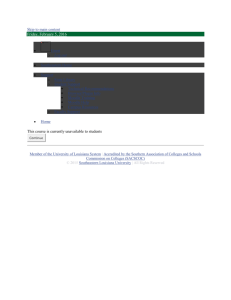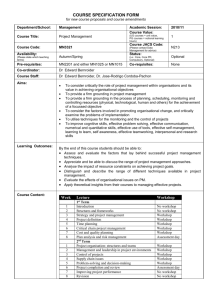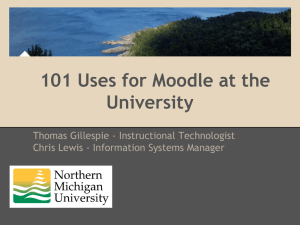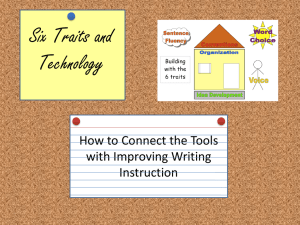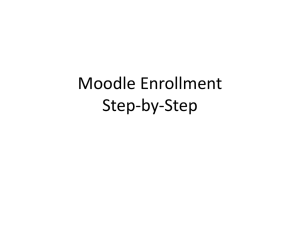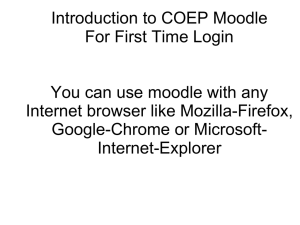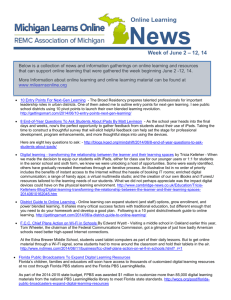Vertical Alignment Professional Development
advertisement
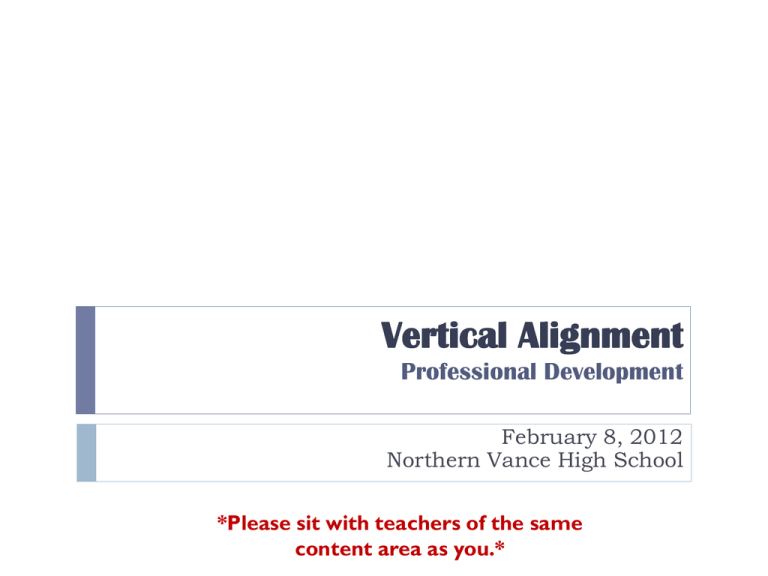
Vertical Alignment Professional Development February 8, 2012 Northern Vance High School *Please sit with teachers of the same content area as you.* Where We’ve Been Introduction Changes to Common Core/NC Essential Standards in specific course objectives Use of Bloom’s Taxonomy Five Strands Conceptual Focus What’s Next Today’s Purpose To explore the vertical alignment of instruction and assessments to ensure that course expectations (2012-2013) are appropriately aligned to Common Core/NC Essential state standards. Activity: Building a Map • In two separate groups, remove the content of the envelope and place them on the table so that all members can read its statements • Discuss what statements should be learned and/or mastered at each grade band (K-2, 3-5, 6-8 and 9-12) in regards to the History Strand Activity: Building a Map • Have one group member keep notes of the conversations and/or questions that arise • Once a group consensus has been made, arrange them on the table under the appropriate grade band • Make note of how one statement may contribute to the understanding of another Activity: Building a Map • Have a group member share out the group’s progression map and discussions with the whole group Compare your maps to the NC Social Studies Essential Standards K.H.1.3. Explain the impact of how life events bring change 1.H.1.3. Explain why national holidays are celebrated 2.H.1.3. Compare various interpretations of the same time period using evidence such as photographs and interviews. 3.H.2.2. Explain how multiple perspectives are portrayed through historical narratives. 4.H.1.4. Analyze North Carolina’s role in major conflicts and wars from the Pre-Colonial period through Reconstruction. 5.H.2.1 Summarize the contributions of the “Founding Fathers” to the development of our country. 6.H.2.3. Explain how innovation and/or technology transformed civilizations, societies and regions over time 7.H.2.4.Analyze the economic, political, and social impacts of disease 8.H.3.4.Compare historical and contemporary issues to understand continuity and change in the development of North Carolina and the United States. WH.2.5.Analyze the development and growth of major Eastern and Western religions AH1.H.8.3. Evaluate the extent to which a variety of groups and individuals have had opportunity to attain their perception of the “American Dream” through Reconstruction AH2.H.5.1.Summarize how the philosophical, ideological and/or religious views on freedom and equality contributed to the development of American political and economic systems since Reconstruction HOW DID YOUR GROUP DO? Discuss your reactions and any misconceptions that you/your group may have had. The Current Dilemma Inch-deep coverage Re-teaching at next level Lengthy review Definition of insanity The Solution VERTICAL ALIGNMENT Establishing and/or recognizing the scope and sequence of course content to ensure… DAILY instructional activities/lessons are aligned to state standards An appropriate amount of time is devoted to instruction Gaps are indentified Unnecessary repetitions are removed Assessments are appropriate (Cohen, 1987; English & Steffy, 2001; Moss-Mitchell, 1998; Neidermeyer & Yelon, 1981; Porter et al., 1994; Porter & Smithson, 2001; Price-Braugh, 1997; Wishnick, 1989) Activity: Course Reflection • Independently answer the four reflection questions on the front side of the handout provided • Share your responses with members of your content area Common Core/NC Essential Standards Correlation • On the back side of the handout provided, complete the first three columns based on your input on the front side • For the Common Core/NC Essential Standards Correlation column, search your new standards for those major concepts/skills; provide the objective number and a brief description of all occurrences Instructions on Locating YOUR Standards PLEASE PAY CLOSE ATTENTION TO THE DETAILS AND VOCABULARY OF THE STANDARDS; not intended to be new wording for old ways of doing things! Common Core/NC Essential Standards Correlation cont. • Share your table with members of your content area • Have one member compile an electronic group response; upload it to the Moodle forum Major Course Concepts (click here for instructions) • Have a whole-group discussion on the common/major ideas Things to Discuss (should include but not limited to): Concepts/Skills learned at lower levels that should lend themselves to major concepts in upper levels Any repetition of course concepts/skills The amount of time spent on concepts/skills identified as strengths and weaknesses What topics/skills are nice to know as opposed to what is essential? Power Standards Refer back to the fourth question on Course Reflection sheet – “What do you wish you could give your students more of?” Your response to that prompt were probably items considered as “power standards” Not intended to undermine CCSS/NCES Power Standards are… “those Emphasis on Idealism standards that, once enduring vs. Realism understanding mastered, give a student the ability to use reasoning and thinking skills to learn and understand other curriculum Marzano’s Prioritization objectives Instructional NOT Strategies Elimination Power Standards Criteria Power Standards help teachers focus and prioritize what is most important for students to know and be able to do in the time available for teaching and learning. Three criteria of PS: Readiness for Further Study: Students should have an opportunity to master skills, concepts and processes that will provide the necessary foundation for being successful in their studies. Leverage: Students should study skills, concepts and processes that have wide applicability to other areas of study. Endurance: Students should study skills, concepts and processes that they will likely draw on throughout their lives. What are YOUR Power Standards? What will you provide your students with to ensure success – in your class, in their next level class and so on (leverage, readiness for next levels of learning), in life (endurance), and on your final/state exam under the new curriculum? Post your response on the Moodle discussion forum Power Standards; we will refer to these standards along with our major concepts in our next session Where We’re Going On next/last early release session will be on Wednesday, March 21 at Northern We will begin Unit/Assessment Planning and Locating Resources There will be two days of Common Core/NC Essential Standards training for core teachers this summer – Dates TBA Before you GO… To submit an evaluation on today’s professional development session: •Return to the 1:1 Professional Development VCS Moodle http://moodle.vcs.k12.nc/moodle •Under the EVALUATION topic, select “Professional Development (Feb. 8, 2012) EVALUATION” *Hard copies are available for those without laptops/internet connection Instructions Go to the VCS Moodle site Click on Instructional Technology from the Course Categories Click on 1:1 Professional Development VCS Under today’s section, open the Word document Major Course Concept Complete the table based on the input provided by your group members; SAVE the document Return to the Moodle and attach the file to the forum Major Course Concept Return to Activity Locating YOUR Standards Go to the VCS Moodle site Click on Instructional Technology from the Course Categories Click on Common Core & NC Essential Standards Locate your content area Select the document that you wish to view Return to Activity Part 2


